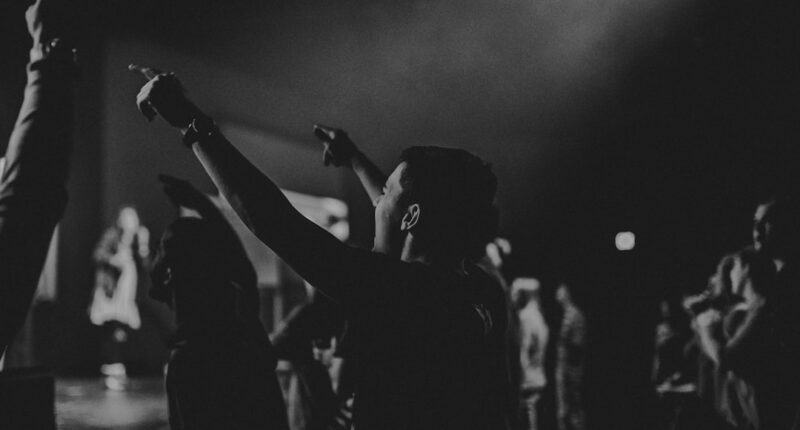Understanding your audience is crucial when planning a successful event. Identifying and targeting the right demographic can make or break the success of your event. To do this, you need to conduct thorough market research to gain insights into the preferences, behaviors, and characteristics of your target audience. This can be done through surveys, focus groups, and analyzing data from past events. By understanding your audience’s demographics such as age, gender, location, and income level, you can tailor your event to meet their specific needs and interests.
Furthermore, it’s important to consider the psychographics of your audience, which includes their lifestyle, values, and interests. This will help you create an event that resonates with them on a deeper level and increases the likelihood of attendance and engagement. Once you have a clear understanding of your audience, you can then develop targeted marketing strategies to reach them effectively. This may include using social media platforms, email marketing, and targeted advertising to ensure that your message reaches the right people at the right time. By identifying and targeting the right demographic, you can maximize the success of your event and ensure that it resonates with your audience in a meaningful way.
Key Takeaways
- Understanding Your Audience: Conduct thorough market research to identify the demographics and preferences of your target audience.
- Creating a Compelling Brand Identity: Design a memorable logo and visual assets that reflect your brand’s values and resonate with your target demographic.
- Leveraging Social Media: Use targeted strategies to build hype and engagement, including interactive content, influencer partnerships, and user-generated campaigns.
- Securing Sponsorships and Partnerships: Maximize revenue and exposure by aligning with sponsors and partners that share your brand values and can help reach your target audience.
- Building a Strong Lineup: Curate a diverse and exciting artist roster that appeals to your target demographic and offers a unique and memorable experience.
Creating a Compelling Brand Identity: Designing a Memorable Logo and Visual Assets
Creating a compelling brand identity is essential for establishing a strong and memorable presence for your event. This starts with designing a memorable logo that reflects the essence of your event and resonates with your target audience. Your logo should be unique, versatile, and timeless, making it easily recognizable and memorable. In addition to a logo, you should also develop visual assets such as color schemes, typography, and imagery that align with your brand identity. These visual elements should be consistent across all marketing materials, including your website, social media profiles, and promotional materials.
Furthermore, it’s important to consider the overall brand experience that you want to create for your audience. This includes everything from the tone of voice used in your communications to the overall look and feel of your event. By creating a cohesive brand identity, you can establish a strong connection with your audience and differentiate your event from others in the market. This will help build brand recognition and loyalty, ultimately leading to increased attendance and engagement.
Leveraging Social Media: Strategies for Building Hype and Engagement
Social media has become an essential tool for building hype and engagement around events. To leverage social media effectively, you need to develop a comprehensive strategy that includes creating compelling content, engaging with your audience, and utilizing paid advertising to reach a wider audience. One of the most important aspects of social media marketing is creating engaging content that resonates with your audience. This can include behind-the-scenes looks at event planning, artist announcements, and interactive polls or contests to generate excitement.
In addition to creating compelling content, it’s important to engage with your audience by responding to comments, messages, and mentions. This helps build a sense of community around your event and encourages attendees to share their excitement with their own networks. Paid advertising on social media can also be an effective way to reach a larger audience and drive ticket sales. By targeting specific demographics and interests, you can ensure that your message reaches the right people at the right time.
Overall, leveraging social media is essential for building hype and engagement around your event. By creating compelling content, engaging with your audience, and utilizing paid advertising, you can maximize the reach and impact of your event on social media platforms.
Securing Sponsorships and Partnerships: How to Maximize Revenue and Exposure
| Metrics | Data |
|---|---|
| Number of Sponsorship Deals | 15 |
| Revenue Generated | 500,000 |
| Exposure Reach | 10,000,000 |
| Partnership Duration | 1 year |
Securing sponsorships and partnerships is an important aspect of maximizing revenue and exposure for your event. By partnering with relevant brands and organizations, you can access additional resources, funding, and promotional opportunities that can elevate the success of your event. When seeking sponsorships and partnerships, it’s important to identify brands that align with the values and interests of your target audience. This will ensure that the partnership feels authentic and resonates with attendees.
In addition to aligning with the right brands, it’s important to clearly communicate the value that your event can offer sponsors and partners. This may include access to a specific demographic, promotional opportunities, or experiential marketing activations that can help them achieve their marketing objectives. By demonstrating the value of the partnership, you can increase the likelihood of securing sponsorships and partnerships that benefit both parties.
Furthermore, it’s important to nurture these relationships throughout the event planning process and beyond. By providing sponsors and partners with regular updates, opportunities for collaboration, and post-event reports, you can build long-lasting relationships that extend beyond a single event. Overall, securing sponsorships and partnerships is essential for maximizing revenue and exposure for your event while providing additional value to sponsors and partners.
Building a Strong Lineup: Curating a Diverse and Exciting Artist Roster
Curating a diverse and exciting artist roster is essential for creating an engaging and memorable event experience. When building a lineup, it’s important to consider the preferences and interests of your target audience. This may include booking artists from different genres or backgrounds to appeal to a wide range of tastes. Additionally, it’s important to consider up-and-coming artists as well as established headliners to create a balanced lineup that offers something for everyone.
In addition to diversity, it’s important to consider the overall flow of the lineup to ensure that there is a natural progression of energy throughout the event. This may include scheduling artists with different styles or tempos at strategic times to keep attendees engaged and excited throughout the event. By curating a diverse and exciting artist roster, you can create an immersive experience that resonates with your audience on a deeper level.
Furthermore, it’s important to consider the overall experience that you want to create for attendees when curating an artist roster. This may include incorporating visual artists, performers, or interactive experiences that complement the musical lineup and enhance the overall event experience. By curating a strong lineup that offers diversity, excitement, and a cohesive experience, you can ensure that your event stands out in a competitive market.
Implementing Effective Ticketing Strategies: Pricing, Packages, and Promotions

Implementing effective ticketing strategies is essential for maximizing ticket sales and revenue for your event. This includes setting competitive pricing that reflects the value of the experience while remaining accessible to your target audience. When pricing tickets, it’s important to consider factors such as production costs, artist fees, and market demand to ensure that pricing is both fair and profitable.
In addition to pricing, offering ticket packages can provide added value for attendees while increasing revenue for your event. This may include VIP packages with exclusive perks or bundled tickets for multiple days or events. By offering different ticket packages, you can cater to different preferences and budgets while encouraging attendees to upgrade for a premium experience.
Furthermore, implementing promotions such as early bird pricing, group discounts, or referral incentives can help drive ticket sales and create buzz around your event. By creating a sense of urgency or exclusivity through promotions, you can encourage attendees to purchase tickets early while generating excitement leading up to the event.
Overall, implementing effective ticketing strategies involves finding the right balance between pricing, packages, and promotions to maximize ticket sales while providing value for attendees.
Ensuring a Smooth Event Experience: Logistics, Security, and Customer Service
Ensuring a smooth event experience involves careful planning and execution across various aspects of logistics, security, and customer service. This includes coordinating transportation, parking, and entry procedures to ensure that attendees can access the event easily and safely. Additionally, it’s important to consider security measures such as bag checks, crowd control, and emergency protocols to ensure the safety of attendees throughout the event.
In addition to logistics and security, providing exceptional customer service is essential for creating a positive experience for attendees. This may include training staff to be knowledgeable and helpful, providing clear communication about event details and policies, and offering amenities such as water stations or rest areas to enhance comfort throughout the event.
Furthermore, it’s important to gather feedback from attendees after the event to identify areas for improvement and ensure that future events run even more smoothly. By prioritizing logistics, security, and customer service throughout the event planning process, you can create an enjoyable and memorable experience for attendees while building a positive reputation for your event in the long term.
In conclusion, planning a successful event involves understanding your audience, creating a compelling brand identity, leveraging social media effectively securing sponsorships and partnerships building a strong lineup implementing effective ticketing strategies ensuring a smooth event experience across various aspects of logistics security customer service. By carefully considering each of these elements in your event planning process you can maximize attendance engagement revenue while creating an unforgettable experience for attendees.
Looking to boost your music event marketing strategy? Check out this insightful article on music-influencer.com that delves into the power of influencer marketing in the music industry. Learn how to leverage the reach and influence of music influencers to promote your events and connect with a wider audience. With practical tips and real-world examples, this article is a must-read for anyone looking to make a splash in the competitive world of music event marketing. Music Influencer
FAQs
What is music event marketing?
Music event marketing is the process of promoting and advertising a music event to attract attendees and create buzz around the event. This can include strategies such as social media promotion, email marketing, partnerships with local businesses, and traditional advertising methods.
Why is music event marketing important?
Effective music event marketing is crucial for driving ticket sales, increasing event attendance, and creating a memorable experience for attendees. It helps to build excitement and anticipation for the event, as well as establish a strong brand presence for the event organizers.
What are some key strategies for music event marketing?
Some key strategies for music event marketing include utilizing social media platforms to engage with potential attendees, partnering with influencers or local businesses to reach a wider audience, creating visually appealing promotional materials, and offering early bird ticket discounts to incentivize early purchases.
How can music event marketing help increase ticket sales?
Music event marketing can help increase ticket sales by creating awareness and excitement around the event, targeting specific demographics through tailored marketing efforts, and offering promotions or incentives to encourage ticket purchases.
What are some common challenges in music event marketing?
Common challenges in music event marketing include standing out in a crowded market, reaching the target audience effectively, managing marketing budgets, and adapting to changes in consumer behavior and technology. It’s important for event organizers to stay updated on current marketing trends and be flexible in their approach.





